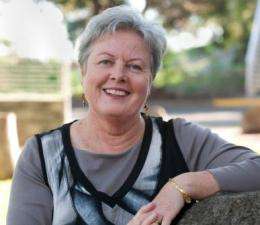Solution to spare embryos

An overwhelming majority of South Australians would rather see spare embryos used and not discarded, a Flinders University study has found.
Of the 2693 people who participated in the study, 46 per cent stated that any stored embryos leftover from fertility treatment should be used in research while 21 per cent said they should be donated to would-be parents, with just 6 per cent voting for them to be discarded.
The study – led by Flinders Associate Professor Sheryl de Lacey (pictured) in partnership with Macquarie University and the University of Adelaide – aimed to ascertain the community’s views on biological donation, particularly spare IVF embryos and organs, with the findings about embryo donation recently published in the international journal Reproductive BioMedicine Online.
Other results of the research indicated that 41 per cent of respondents considered embryos as either potential humans (33 per cent) or actual humans (8 per cent), while 39 per cent described them as biological cells.
Men were more likely to consider embryos to be biological cells, yet women and people over the age of 63 were more inclined to view them as humans or potential humans.
In addition, respondents who described an embryo as a cluster of cells were more likely to favour research, while those who considered an embryo to be human or a potential human felt they should be donated to childless couples.
Associate Professor de Lacey said the majority of people surveyed felt it was up to the couple to decide the fate of their embryos, regardless of how each respondent described the embryo.
“The vast majority of people believed the embryo should be used, not wasted, and some even said they didn’t care how they were used as long as they weren’t disposed of,” Associate Professor de Lacey said.
“But no matter what their personal wishes were, the majority of people agreed it should be the couple’s decision to determine what to do with their embryos.”
Under the federal Research Involving Human Embryos Act, embryos can legally be used for research purposes, in addition to national ethical guidelines on assisted reproduction which state that any unused embryos can be donated to another couple for IVF treatment or discarded.
However, Associate Professor de Lacey said the law failed to meet community expectations about embryos, nor did it define whether an embryo was a person or property.
“The real problem is that the definition of an embryo leans towards defining it as biological cells while a proportion of the community think of it as a human already,” she said.
“Also there’s no legal status for the embryo – it doesn’t belong to anyone once it’s out of the body so if a couple gets divorced, for example, there may be legal controversy over who it belongs to.”
She said the findings of the research, which were compiled between 2007 and 2010 as part of the South Australian Health Omnibus Survey, verified the need for a broader legal definition of an embryo, as well as a law to support ownership rights on unused embryos.
“The majority of people don’t want embryos to be discarded but at the same time there’s a polarisation on whether embryos are human or biological cells, and how they should be used, so offering a range of options for unused embryos is essential.
“Given this polarisation our view is that it’s really important to do more consultation – if you want to make meaningful policies you have to talk to a broad cross-section of people. Calling for submissions can result in a whole lot of opinions from people who have their own drum to bang.”












.jpg)





